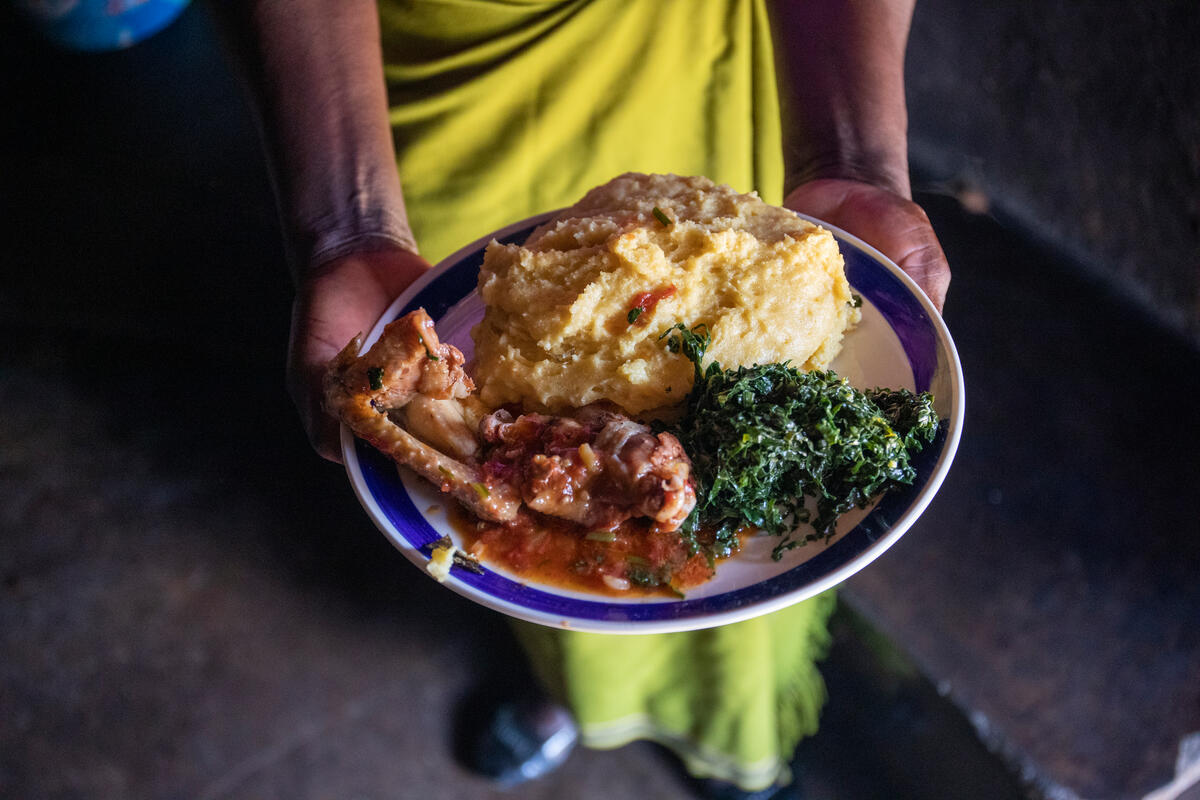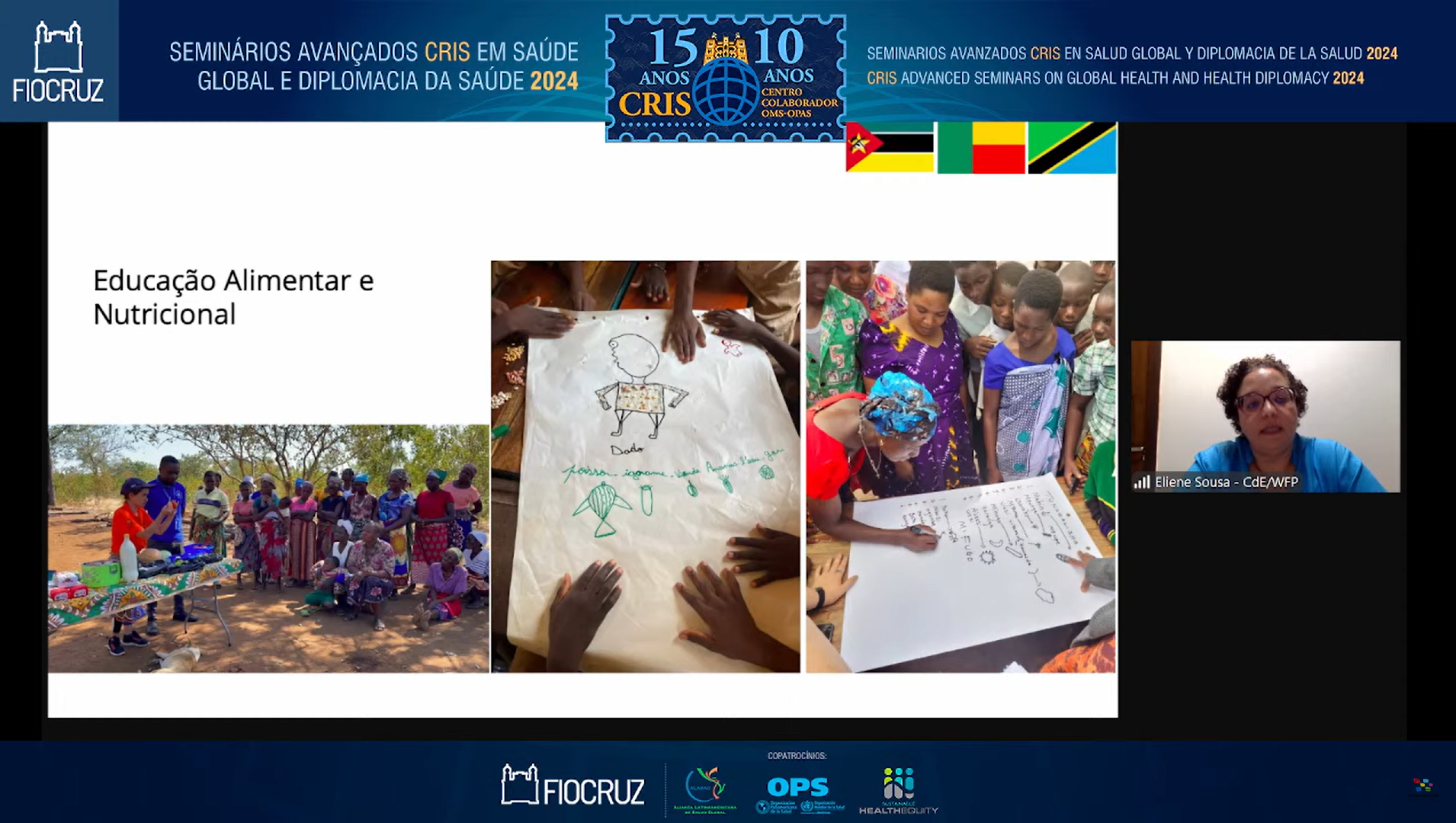
On Wednesday morning (10), the Nutrition Coordinator of the World Food Programme (WFP) Centre of Excellence against Hunger in Brazil took part in the online seminar “Tackling global hunger: national, regional and international responsibilities”. The event is part of the Advanced Seminars on Global Health and Health Diplomacy, promoted by the Centre for International Relations in Health (CRIS/Fiocruz).
Among the topics discussed at the seminar were the Global Alliance against Hunger and Poverty, the role of public policies in the fight against hunger, governance and social participation, the importance of South-South cooperation, the Latin American experience in the fight against hunger and the history of the fight against hunger in Brazil. In addition, the speakers talked about the current global climate and economic crisis, as well as the COVID-19 pandemic, and how these issues impact our food systems, interfere with access to food and the fight against hunger and poverty.
 The Centre of Excellence’s Nutrition Coordinator, Eliene Sousa, explained how the WFP works in 123 countries and territories and the Centre’s work in Brazil, mainly linked to South-South Cooperation and the fight against hunger. “After responding to emergencies, there is a need for restructuring. In this sense, international cooperation, the Global South, emerges as a leading voice not only in governance, but in implementing actions to fulfil the 2030 Agenda, sharing, adapting and implementing solutions,” said Eliene.
The Centre of Excellence’s Nutrition Coordinator, Eliene Sousa, explained how the WFP works in 123 countries and territories and the Centre’s work in Brazil, mainly linked to South-South Cooperation and the fight against hunger. “After responding to emergencies, there is a need for restructuring. In this sense, international cooperation, the Global South, emerges as a leading voice not only in governance, but in implementing actions to fulfil the 2030 Agenda, sharing, adapting and implementing solutions,” said Eliene.
Up to 783 million people faced hunger in 2022, according to the latest State of Food Security and Nutrition in the World (SOFI) report. Although chronic hunger stabilised in 2022 at a global level, it is increasing in Western Asia, the Caribbean and all regions of Africa. In Brazil, the percentage of people facing severe food insecurity went from 1.9 per cent (2014-2016) to 9.9 per cent (2020-2022).
The discussion was also attended by Saulo Ceolin, from the Brazilian Ministry of Foreign Affairs, Sávio Costa, advisor and representative of the food and nutritional security secretariat of the Ministry of Social Development, Marcos Aurélio Lopes Filho, General Coordinator of the National Council for Food and Nutritional Security (CONSEA), Israel Rios, nutrition consultant for FAO Mesoamerica, and Denise Oliveira and Eduardo Nilson, from Fiocruz in Brasilia.
The series of seminars began in 2020 due to the COVID-19 pandemic and this is the 11th seminar this year. Check out the full debate on Fiocruz’s YouTube channel.




